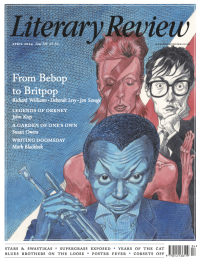Stephen Vines
Land Where Allegories are Banned
Freedom Undone: The Assault on Liberal Values and Institutions in Hong Kong
By Michael C Davis
Association for Asian Studies 272pp £14.99
Why would anyone want to destroy a highly successful, freewheeling society? Nobody familiar with the recent history of Hong Kong can avoid that question. After a century and a half of British colonial rule, Hong Kong had achieved a surprisingly high degree of liberty by the late 1990s, a situation made all the more surprising because the basic framework of democracy, which customarily underpins liberty, was absent, even though in the last years of British rule attempts were made to install some democratic underpinnings. In 1997, Britain handed over to China a prosperous colony which punched impressively above its weight precisely because its society was founded on the rule of law and enjoyed a degree of freedom conducive to entrepreneurship. China, despite never acknowledging the legitimacy of British rule, made a treaty under international law to facilitate the handover of power. It guaranteed a minimum timespan of fifty years for the continuation of Hong Kong’s way of life and freedoms within an autonomous system.
In the period between the treaty being signed in 1984 and the handover, Beijing indicated that it would be unlikely to honour the deal, but those of us then living in Hong Kong hoped and believed that parts of the status quo would be upheld. That hope has now been shattered. Michael Davis, a legal scholar and human rights activist, provides a detailed account of how and why this happened. Most of the details will be familiar to anyone who follows developments in Hong Kong, but Davis’s careful compendium of hammer blows shows just how much has been lost and how comprehensively the so-called Hong Kong Special Administrative Region has been destroyed. Davis cites the work of the scholar Eric Yan-ho Lai, who describes this process as ‘autocratisation’, which involves moving slowly at first and then very fast to demolish all aspects of an open society.
This brings us to the question of why Beijing has been so determined to shatter the ‘golden egg’ that fell in its lap. The answer, Davis argues, is to be found not in the tremendous power wielded by the Communist Party but in its insecurity, which ‘produced a regime that

Sign Up to our newsletter
Receive free articles, highlights from the archive, news, details of prizes, and much more.@Lit_Review
Follow Literary Review on Twitter
Twitter Feed
‘The Second World War was won in Oxford. Discuss.’
@RankinNick gives the question his best shot.
Nicholas Rankin - We Shall Fight in the Buttery
Nicholas Rankin: We Shall Fight in the Buttery - Oxford’s War 1939–1945 by Ashley Jackson
literaryreview.co.uk
For the first time, all of Sylvia Plath’s surviving prose, a massive body of stories, articles, reviews and letters, has been gathered together in a single volume.
@FionaRSampson sifts it for evidence of how the young Sylvia became Sylvia Plath.
Fiona Sampson - Changed in a Minute
Fiona Sampson: Changed in a Minute - The Collected Prose of Sylvia Plath by Peter K Steinberg (ed)
literaryreview.co.uk
The ruling class has lost its sprezzatura.
On porky rolodexes and the persistence of elite reproduction, for the @Lit_Review: